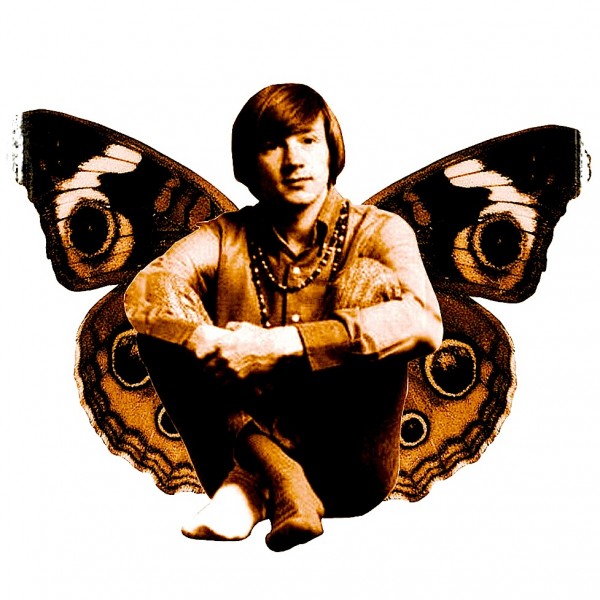
![]() BY JONATHAN VALANIA There are two kinds of people in this world: people who love The Monkees and sanctimonious assholes who fancy themselves the arbiters of authenticity. Whatever that is. Never trust anyone who tells you they don’t like the Monkees has always been my motto and it’s served me well. As just about everyone of a certain age knows, from 1967 to 1970 The Monkees were Hollywood’s answer to The Beatles circa Hard Days Night. These fab four pop primates — Micky Dolenz, Davy Jones, Michael Nesmith and Peter Tork — were chosen more for their looks and personalities than their musical chops by show producers and put in front of TV cameras where they portrayed a band called The Monkees who lived together in a groovy pad, drove around town in their badass Monkeemobile, slapsticking their way from one campy California-in-the-high-Sixties adventure to another, always too busy singing to put anybody down. Faintly trippy hilarity invariably ensued.
BY JONATHAN VALANIA There are two kinds of people in this world: people who love The Monkees and sanctimonious assholes who fancy themselves the arbiters of authenticity. Whatever that is. Never trust anyone who tells you they don’t like the Monkees has always been my motto and it’s served me well. As just about everyone of a certain age knows, from 1967 to 1970 The Monkees were Hollywood’s answer to The Beatles circa Hard Days Night. These fab four pop primates — Micky Dolenz, Davy Jones, Michael Nesmith and Peter Tork — were chosen more for their looks and personalities than their musical chops by show producers and put in front of TV cameras where they portrayed a band called The Monkees who lived together in a groovy pad, drove around town in their badass Monkeemobile, slapsticking their way from one campy California-in-the-high-Sixties adventure to another, always too busy singing to put anybody down. Faintly trippy hilarity invariably ensued.
In between all the stoner hijinks they would have weird-beard friends like Frank Zappa and Tim Buckley over to the house to perform for a national television audience. On their first national tour they took Jimi Hendrix along as their opening act, simultaneously blowing the minds and ruining the undergarments of an entire generation of babysitters. All their early and most enduring songs were written by Brill Building pop adepts like Boyce & Hart, Carole King, Gerry Goffin and Neil Diamond and performed by The Wrecking Crew, which explains why those glorious specimens of guitar pop still sound deathless.
To mark the sad passing of Mr. Tork yesterday at the age of 77, we are re-running our award-winning, life-saving, game-changing, prayer-answering Phawker Q&A with Peter Tork. DISCUSSED: Dropping acid; jamming with Jimi Hendrix and George Harrison; seeing The Who at Monterey Pop; why Stephen Stills was too ugly to be a Monkee; WTF they were thinking when they made Head, their psychedelic box office bomb; WTF Jack Nicholson was thinking when he wrote Head; getting busted for three grams of hash in El Paso and doing Federal time; his last words to Davy Jones; and why Mike Nesmith is such a goddamn stick in the mud. Enjoy.
PHAWKER: Let’s jump into The Monkees experience. Just tell me if this is true. Your friend Stephen Stills was auditioning to be a Monkee but they told him he wasn’t handsome 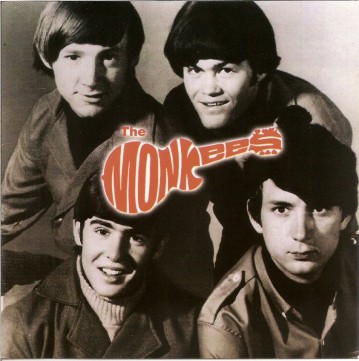 enough and did he know anybody who was and he suggested you, correct?
enough and did he know anybody who was and he suggested you, correct?
PETER TORK: I don’t know about that exactly. He called me up one day and said I met this guy and he’s making a show like Hard Day’s Night and you should try out for it. I said, ‘what about you?’ and he said ‘they told me my hair and teeth weren’t photogenic, and did I know anybody who had one tenth my talent, and I instantly thought of my friend Peter.’ So I went and tried out and got the gig. Yeah, it was Stephen who turned me on to it.
PHAWKER: What do you remember about that audition? Did they have you play some songs or was it just a screen test?
PETER TORK: The first thing that happened was you just walked into the producer’s office and talked to the guy, and if he had a glimmering that there was something there he sent you to the other producer’s office and if he like you, then you took a personality test which was they put you in front of a camera and started asking you questions, and if they still didn’t say no then they gave us a screen test. There were eight of us left after the screen test and they selected the four from how we did on the screen test.
PHAWKER: And you were cast as the ‘lovable dummy’? Did you resent that role?
PETER TORK: No, I did not resent that role. I actually thought it was mine to begin with and I brought that role in to the gig. We didn’t get explicit with it right away, but the truth is I already kind of had this ‘Gosh I don’t know what happened to me’ kind of a jig. I developed it in the Greenwich Village stages, kind of as a defense against a joke going bad. You know, as if to say ‘someone told me this was going to be funny and they must have lied to me’ kind of an attitude.
PHAWKER: And it’s you that came up with the piano intro to “Daydream Believer”? Is that correct?
PETER TORK: That’s correct.
PHAWKER: That’s a pretty little little piece of music right there.
PETER TORK: Thank you, thank you. They just said here’s the song and I did this, and they said OK, and then I did this and, oh, OK, and it’s interesting because I didn’t even know what the name of what I had done was until, I don’t know, three or four years ago. Someone said it’s a five seventh suspended. I said ‘Oh, OK.’ (Laughs)
PHAWKER: Tell me, how do you guys get connected with Jimi Hendrix? How does that come about?
PETER TORK: Micky and I both saw Jimi at Monterey Pop. We were both at the Monterey Pop Festival, and Micky became very excited. I didn’t get it because he followed the The Who, and The Who smashed their guitars and Jimi burned his guitar and I said ‘I just saw this act.’ Micky got it. Micky was paying attention. I wasn’t paying attention. I was full of myself.
PHAWKER: But you actually jammed with him too? He opened your tour, correct?
 PETER TORK: He opened the tour for us, yep. We learned a lot from Jimi. He was a wonderful man. Just as open, and straight ahead, and kind as you could possibly hope for a man to be. Yes, we did jam. Not a whole heck of a lot, but he’d come over from time to time to my house in Studio City and we’d sit in the back room and play guitar for a while. It was what he wanted to do. It was how he spent his days. One day I was in a hotel room with Micky and a bunch of woman and Stephen Stills and Jimi Hendrix, and Jimi and Stephen were jammin’ together and Micky and I were making out with the women. So we had this great soundtrack for our amorous escapades.
PETER TORK: He opened the tour for us, yep. We learned a lot from Jimi. He was a wonderful man. Just as open, and straight ahead, and kind as you could possibly hope for a man to be. Yes, we did jam. Not a whole heck of a lot, but he’d come over from time to time to my house in Studio City and we’d sit in the back room and play guitar for a while. It was what he wanted to do. It was how he spent his days. One day I was in a hotel room with Micky and a bunch of woman and Stephen Stills and Jimi Hendrix, and Jimi and Stephen were jammin’ together and Micky and I were making out with the women. So we had this great soundtrack for our amorous escapades.
PHAWKER: That is quite a soundtrack for getting’ busy. I wanted to ask you a little bit about Head. What were you guys trying to do with Head? There’s been some speculation that you were looking to, I don’t know, kill off The Monkees lovable image and show, sort of, the dark side of the band. Is there any truth to that?
PETER TORK: I don’t know. It’s hard to say. You’d have to ask Bob Rafelson. He co-wrote and co-produced it. You might ask Jack Nicholson who was the other co-writer/co-producer. But there was something about trying to abandon, or trying to shatter the original Monkees image. It was probably the way Rafelson saw us, saw the phenomenon, saw us individually and saw us as we related to the phenomenon of being The Monkees. Also, there was this quality of your first movie, Bob Rafelson and Jack Nicholson making their first movie and there was this ambition to make a hell of a first movie. Nobody has made a first movie as good as Orson Wells made a first movie, and there probably never will be anybody as good at their first movie as Citizen Kane was, and there are a couple of considerations that didn’t hold. We didn’t know how it was gonna go. We thought we might do well and, in fact, it was one of the worst bombs in Columbia Screen Gems history so, I don’t know what to say about all that. I guess there was an attempt to dispose of The Monkees image and disposing of The Monkees entirely is exactly what happened.
PHAWKER: Tell me, at that point, had all four members of the band tried LSD? We’re you all involved in the psychedelic scene, as it were?
PETER TORK: I had. I did try LSD. I did some acid before the band, ever before The Monkees. I’m not sure I know of anyone else doing acid in the band.
PHAWKER: Really?
PETER TORK: Yeah. I was the ‘head’ in the band.
.
PHAWKER: You were the ‘head’?
PETER TORK: I was the ‘head.’
PHAWKER: You were the head, Head? Man, I just feel like we had a zany Monkees moment. Now I know how Nesmith felt. Do you remember the circumstances of your first LSD experience?
PETER TORK: Sure. I can tell you. Have you ever done it?
PHAWKER: Sure. Me and Steve Jobs. We both did it, just not together. And he wound up making more money.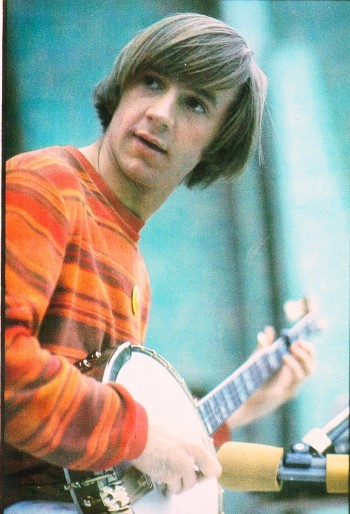
PETER TORK: Well, it doesn’t make you forget. It’s not like, well I don’t know …
PHAWKER: What I mean is, where were you, when did you do it, who did you do it with, that kind of thing. Anyone I’d know?
PETER TORK: Well, no. College buds in New York City. We were told not to do it in the urban setting but we took a chance and we did it in New York. It was fun. It was fine, and I took a couple of sugar cubes with me when I went out to the West Coast, cubes of acid. I’d been told that it deteriorates with heat and it had been sitting in a suitcase in the hot automobile trunk and, well you know, I thought I’d better take both and it turns out it doesn’t deteriorate with heat, it deteriorates with light, and so I had a double dose with the second trip I took. That was a trip and a half. I was sure that this girl was playing games with me and hiding behind that car over there and I went over there and she wasn’t there and I said, ‘Oh, I wonder what’s next.’ But it was cool. It was fun. I never had a bad trip on acid, and I never even had a bad trip on anything else, although I had some an uncomfortable moment or two on some of the variants.
PHAWKER: Is this true that you were busted in Oklahoma for hashish and actually had to do a little federal time in Oklahoma?
PETER TORK: I got busted with about three dollars’ worth of hash coming back into El Paso from, I think it was Juarez, the next city across the river. I wasn’t even thinking about it. I didn’t even remember I had it. I would have dumped those three dollars’ worth of hash. It just wasn’t worth it. And I spent 30 days in a federal Oklahoma institution but I was not sentenced, I was committed, which is different. It was part of a sentencing arrangement which allows me to legally say that I have never been arrested on a felony charge.
PHAWKER: That sounds like a very similar arrangement to what Rocky Erickson from The 13th Floor Elevators got.
PETER TORK: I wouldn’t know. I don’t know what his story was.
PHAWKER: He had a choice of either doing hard time in prison or going to a mental institution.
PETER TORK: No, this wasn’t a mental institution. They sent me to a regular jail, but it was, when I say on a commitment, the point was I did 90 days in this thing and they checked with me and they paid attention to me, you know, regular behavioral evaluations. Then they realized I wasn’t a criminal and they sent a report back to the judge and I was sentenced under a provision under the federal law which allowed me to take a year’s probation which, if I didn’t violate would result in my record being wiped.
PHAWKER: Seems like a huge waste of time for everyone, just for smoking the wrong kind of leaf. I wanted to ask you a little bit about Shoe Suede Blues. Tell me what can we expect at the Sellersville Theater?
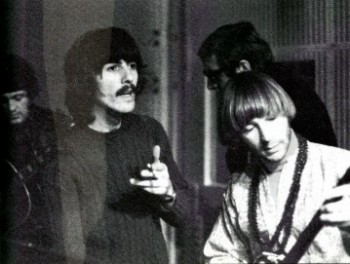 PETER TORK: Shoe Suede Blues. We pretty much got together to play some blues jams, dance band stuff for a couple of little local charities 13 or 14 years ago. We had a great time and just kept enjoying ourselves and then a friend of ours said, well come out to D.C. with us for such and such amount much money, and we said ‘We can’t quite do it for that kind of money. But if you can get us a couple little gigs around the neighborhood, we could make it work, and my friend got the other gigs and we went out to D.C. and, lo and behold, we were a professional band going across country to play and we have essentially remained a national band at that level ever since.
PETER TORK: Shoe Suede Blues. We pretty much got together to play some blues jams, dance band stuff for a couple of little local charities 13 or 14 years ago. We had a great time and just kept enjoying ourselves and then a friend of ours said, well come out to D.C. with us for such and such amount much money, and we said ‘We can’t quite do it for that kind of money. But if you can get us a couple little gigs around the neighborhood, we could make it work, and my friend got the other gigs and we went out to D.C. and, lo and behold, we were a professional band going across country to play and we have essentially remained a national band at that level ever since.
PHAWKER: I see that you cover Dylan’s “She Belongs to Me”, and I’m wondering, did you ever have any connection to Bob Dylan, or are you buddies or recorded?
PETER TORK: No. Never ran into him, never said hello, never had a thing to say to each other as far as I know. I have no idea whether he’s ever said anything about The Monkees or me, or anything else. No reports have reached me to any effect like that.
PHAWKER: What is the story behind this photo I found [pictured. right] of you with George Harrison?
PETER TORK: I’m not positive, but I believe that would be at the recording session for Wonderwall, which I played on soundtrack [recording sessions] for, tho’ my stuff didn’t make it on the soundtrack album.
PHAWKER: I’m curious about the various reunions that happened over the years. Is it safe to say that you guys were never really friends?
PETER TORK: Oh, I don’t know. I would say I was pretty good friends with Micky, and there was a lot of love between me and Davy. I have a lot of respect for Mike Nesmith and we’ve structured ways to work together. Things rotate. It’s like having a basketball team. You know, gosh, it’s like having a championship basketball team. They go on the road every so often and do tours, you know, just exhibition tours but fortunately your music skills don’t deteriorate as fast as your basketball skills do, but I wouldn’t know what else to compare it to. We had a chance to go out together and we took it, and we had a great time, and if we were not friends at all we would not have been able to do it. We played tours months and months long: `86, `87, `89, `91,`92, `96, `97, 2001, 2002 and 2011, so we couldn’t have been such enemies.
PHAWKER: Touché. I’ve always wondered ‘What is Mike Nesmith’s problem?’ Why was he always so reluctant to do the reunions?
PETER TORK: I don’t know that you could say he had a problem. If he doesn’t want to do it, he doesn’t want to do it. That’s not a problem. You know I had one girl throw 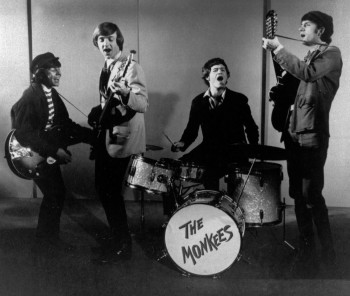 herself at me and I just said I’m not dating you. She said what are you afraid of? You know I don’t like brussel sprouts, but I’m not afraid of them. And it’s like that with Nesmith. He never bothered me. There’s things he wants to do. Here comes a chance to do a tour, and he works with what that will do and what that will get him, and how he feels about it at the moment compared to what else is on his plate, and he says I’m going to do this other thing instead. It’s just as simple as that. I mean you just can’t put a value, or make judgments on that.
herself at me and I just said I’m not dating you. She said what are you afraid of? You know I don’t like brussel sprouts, but I’m not afraid of them. And it’s like that with Nesmith. He never bothered me. There’s things he wants to do. Here comes a chance to do a tour, and he works with what that will do and what that will get him, and how he feels about it at the moment compared to what else is on his plate, and he says I’m going to do this other thing instead. It’s just as simple as that. I mean you just can’t put a value, or make judgments on that.
PHAWKER: I always speculated he had that Liquid Paper money to live on so he never needed to make much money. Is that true?
PETER TORK: In so far as the money is an important inducement for me, Micky or Davy, it’s not the same size inducement as it is for Mike. You know, we’re not going to give him ninety percent of the proceeds just to have him come along and we’ve been very fortunate that Micky, Davy and I have been enough of The Monkees act for the fan base to accept us. We’ve been lucky that Mike’s presence has not been critical as to whether we go out or not. So it’s like I said. Mike likes music, he likes to play, he enjoys The Monkees, he enjoys having been in The Monkees. He has his feelings about being in The Monkees and they’ve changed from time to time, as have mine, and it just depends on what he feels like doing at any given moment.
PHAWKER: Obviously we’re all saddened by the passing of Davy Jones, and my condolences to you, my friend. Do you recall the last time that you spoke with him, or the circumstances of the last time you saw each other?
PETER TORK: No, not specifically. We were touring in 2011, then we came to a break in the proceedings, and we just waved at each other and said ‘see you later’ thinking that we were going to have more touring. Some business stuff suddenly came up and got tangled up in things and we had to postpone a further extension, but we kind of always thought we’d be getting back together more or less, something might come up, and then this. Then Davy passed so that put the kibosh on that particular trio. There’s still a trio left. There were four trios, and this is kind of interesting, there were four trios available and when Davy died the number of possible trios reduced to one. But there’s still one trio possible, there’s one left and that’s enough for The Monkees to go on the road. Maybe The Monkees will tour again. Who knows?
PHAWKER: I think that is all the questions I had for you. Again thank you very much…
PETER TORK: I have one for you, Valania.
PHAWKER: Valania. I like that! No respect.
PETER TORK: What would you say was the political leaning of Phawker.com?
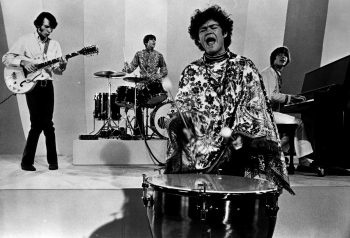 PHAWKER: Well, considering how the middle of the mainstream in this country these days has shifted so far to the right, I’d say we are screamingly radical left, although I would like to think we’re just rational and correct. We can’t help it if reality has a liberal bias.
PHAWKER: Well, considering how the middle of the mainstream in this country these days has shifted so far to the right, I’d say we are screamingly radical left, although I would like to think we’re just rational and correct. We can’t help it if reality has a liberal bias.
PETER TORK: Interesting. OK.
PHAWKER: Why?
PETER TORK: Well, we just had a quick look but we couldn’t’ actually spot it.
PHAWKER: Well, if you went through it you’d see. It’s pretty obvious.
PETER TORK: OK. Do you think Cory Booker has ruined his career?
PHAWKER: Oh, that [Cory Booker post]. I guess that image I used might have led the casual observer to think maybe we’re anti-Obama. That’s not true at all.
PETER TORK: I don’t know how you got that picture of Obama like that because he really looks crazy.
PHAWKER: Yeah, it’s pretty over the top, that’s why I used it . You know that Cory Booker thing, what a mess is all I have to say.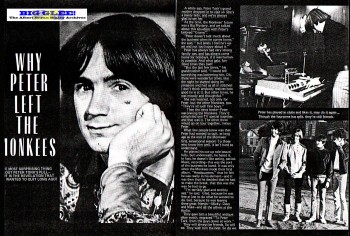
PETER TORK: An awful mess.
PHAWKER: He’s one of these guys, you know, a lot of Wall Street money flows through his veins. Seems to me he was basically signalling that this Obama thing might not work out and he knows what side his bread is buttered on. And he wanted the people with all the butter to know it, too.
PETER TORK: That’s what I think is the impetus [for breaking ranks with the Obama campaign’s questioning of Mitt Romney tenure with Bain Capital]. He was defending [Bain Captial]. You know, he was talking for his masters. And somebody said people who make money don’t realize that not everybody thinks as they do and just didn’t get it that there’s a radical difference in the American people between what the money people think and what the American people think.
PHAWKER: You asked about what our political persuasion is. We’re not so much partisan. I’ve always voted Democrat because there’s not been a better viable option. But I think the real problem in this country is the money in the politics. Until elections are publicly financed we’ll never have a government that actually responds to the will and the needs of the people. It will always respond to the will and the needs of the people that donated the money to put them in office and that’s a big part of why things are so fucked in this country.
PETER TORK: Okey dokey. Thank you Jonathan.
